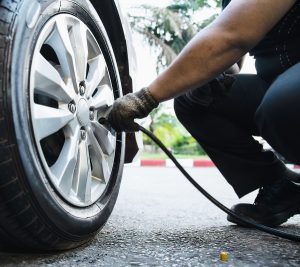The Significance of Consistent Torque Converter Upkeep for Fleet Vehicles
For organizations that manage and oversee a fleet of vehicles, the principles of efficiency and reliability hold paramount importance. The torque converter, often overlooked, plays a crucial role in enhancing a vehicle’s overall performance. The torque converter, a pivotal component of automatic transmission systems, ensures optimal engine performance and facilitates seamless vehicle operation. To ensure the longevity of commercial vehicles and prevent costly breakdowns, it is essential to adhere to a regular maintenance schedule for this component.
Comprehending the Function of the Torque Converter
The torque converter plays a pivotal role in the operation of automatic transmissions. The mechanism conveys engine power to the gearbox, allowing for a controlled slip during acceleration to avert stalling. Furthermore, this device enhances torque, thereby elevating vehicle performance during both acceleration and initial start-up. The torque converter plays a pivotal role in ensuring vehicle reliability, minimizing pollution, and enhancing fuel efficiency. In the absence of consistent upkeep, the torque converter is prone to malfunction or complete failure, leading to expensive repairs and significant downtime.
Indicators of Torque Converter Issues

It is imperative for fleet managers to exercise caution when assessing torque converter complications. Be mindful of warning indicators such as sluggish acceleration, peculiar sounds, excessive heat, and gear slippage. Vehicles may exhibit a slight tremor or transition gradually when shifting gears. Should these recommendations be overlooked, the transmission system could endure significant harm, necessitating expensive repairs and extended periods of inactivity. Regular maintenance and inspections can effectively mitigate these concerns, enabling fleet managers to identify potential issues at an early stage. Choosing the Auto Repair in Lehi, UT based service is most essential here.
The Advantages of Regular Maintenance
A systematic approach to torque converter repair offers significant advantages for fleet car owners and operators. Enhanced vehicle reliability mitigates unforeseen breakdowns that may interrupt operations and incur significant expenses. To enhance performance and optimize fuel efficiency, it is essential to conduct regular maintenance on the torque converter. A meticulously cared-for fleet is likely to enjoy extended vehicle longevity and reduced maintenance expenses. Proactive upkeep reduces repair expenses and enhances efficiency by ensuring vehicles remain operational.
Establishing a Routine for Maintenance
In order to effectively address the repair of torque converters, it is essential for fleet managers to devise a strategy that aligns with manufacturer specifications and the specific usage of the vehicles. This may encompass routine filter replacements, fluid exchanges, and assessments of wear and damage. Telematics and various tracking systems facilitate the scheduling of repairs while also revealing consumption patterns.
In conclusion
The significance of conducting regular torque converter repairs for fleet vehicles cannot be emphasized enough. By prioritizing this crucial element, enterprises can enhance the efficiency of their vehicles while substantially reducing the risk of expensive malfunctions. Establishing and consistently adhering to a comprehensive maintenance program over an extended duration not only enhances efficiency and reliability but also contributes to a reduction in overall costs. For fleet managers dedicated to ensuring their vehicles remain operational and their enterprises function seamlessly, investing in torque converter repair is a crucial measure to undertake.




